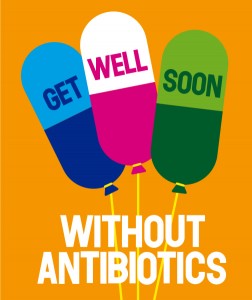Chemist.net Cookie Policy : We use cookies to enhance your user experience. To find out more please view our cookie policy
Joining the fight against antibiotic resistance
 What are antibiotics?
What are antibiotics?
Antibiotics are medicines that can kill or inhibit the growth of bacteria to cure bacterial infections (such as pneumococcal pneumonia or staphylococcal bloodstream infections). Not all antibiotics are active against all bacteria. There are more than 15 different classes of antibiotics that differ in their chemical structure and their action against bacteria. An antibiotic may be effective against only one or multiple types of bacteria.
What is antibiotic resistance?
Antibiotic resistance is the inability for an antibiotic to kill or stop the growth of a particular bacteria. Some bacteria are naturally resistant to certain antibiotics, however the growing concern is acquired resistance, which is when bacteria that are normally susceptible to antibiotics become resistant as a result of genetic changes.
Why is antibiotic resistance a problem?
Resistant bacteria survive in the body despite you taking the antibiotic. They continue to multiply causing longer illness or even death. Infections caused by resistant bacteria may require more care as well as alternative and more expensive antibiotics, which may have more severe side effects.
Multidrug-resistant bacteria can cause a wide range of infections including urinary tract infection, pneumonia, skin infection, diarrhoea, bloodstream infection. Patients in hospitals are at risk for infections unrelated to the reason for admission, including bloodstream and surgical site infections like MRSA.
Why is antibiotic resistance a growing problem ?
The situation is getting worse with the emergence of new bacterial strains resistant to several antibiotics at the same time (known as multidrug-resistant bacteria). Such bacteria may eventually become resistant to all existing antibiotics and we cannot be sure that always be able to find new antibiotics. Without antibiotics, we could return to the "pre-antibiotic era", when organ transplants, cancer chemotherapy, intensive care and other medical procedures would no longer be possible. Bacterial diseases would spread and could no longer be treated, causing death.
What can I do?
While antibiotic resistance cannot be prevented entirely, we can all do our part to slow it down, buying time to develop new types of antibiotics.
Only use antibiotics when it’s appropriate to do so. We now know that most coughs and colds get better just as quickly without antibiotics. Your doctor will only prescribe them if you need them, for example for a kidney infection or pneumonia. Antibiotics may be life-saving for infections such as meningitis. By not using them unnecessarily, they are more likely to work when we need them.
If you are prescribed antibiotics, make sure that you take the full course as directed by your doctor, even if you feel better before the course is complete. If you do not finish your treatment, some bacteria may be left to develop resistance.